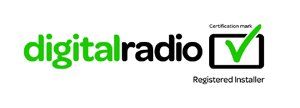01283 533330
Comprehensive GPS Fleet Tracking Solutions
Advanced Vehicle Tracking System

Effective fleet management is crucial for optimising operations and ensuring profitability in today's fast-paced business environment. GPS fleet tracking solutions offer advanced vehicle tracking systems that empower fleet managers to monitor their vehicles in real time, enhance productivity, and improve overall efficiency. This article delves into the essential aspects of GPS fleet tracking, its benefits, and how to choose the right solution for your business.
What is a GPS Fleet Tracking System?
Understanding the Basics of Fleet Tracking
A GPS fleet tracking system is a sophisticated technology that allows businesses to monitor their fleet of vehicles using GPS technology. By utilising a combination of GPS trackers and software, fleet managers can keep track of vehicle locations, analyse driving patterns, and manage their fleets more effectively. This tracking solution provides real-time updates on vehicle status and allows for historical data analysis, helping businesses make informed decisions. Fleet tracking is essential for commercial fleets as it enhances operational efficiency and improves customer service by providing accurate delivery estimates.
Moreover, understanding the fundamentals of fleet tracking involves recognising how it integrates with various telematics solutions. These solutions gather data from the fleet tracking devices and present it through user-friendly interfaces, enabling fleet managers to derive insights into vehicle performance and driver behaviour. By leveraging this technology, businesses can streamline their operations and significantly boost productivity, ultimately enhancing profitability and customer satisfaction. The knowledge gained from fleet tracking can also help plan routes more effectively, reduce idle time, and optimise resource allocation.
How Does GPS Technology Work for Fleet Management?
GPS technology uses a satellite network that transmits signals to GPS receivers installed in fleet vehicles. These receivers calculate their exact location based on the signals received, allowing fleet management software to provide real-time vehicle location tracking. This technology is crucial for fleet managers who need to monitor their vehicles constantly, ensuring they are in the right place at the right time. Furthermore, GPS technology can be integrated with various sensors to gather additional data, such as fuel consumption and mileage, which helps manage operational costs effectively.
In essence, GPS technology serves as the backbone of modern fleet management systems. Using advanced algorithms and mapping software, fleet managers can visualise their vehicle locations on interactive maps, set geofences, and receive alerts when vehicles deviate from designated routes. This enhances driver safety and ensures compliance with regulations, making GPS technology an indispensable tool for fleet operations. Using GPS to monitor vehicle performance enables businesses to implement proactive maintenance strategies, thereby reducing the likelihood of vehicle breakdowns and ensuring a smooth operation.
Key Components of a GPS Fleet Tracking System
A comprehensive GPS fleet tracking system comprises several key components that work in harmony to optimise fleet management. The primary elements include GPS tracking devices, tracking software, and a user-friendly interface for fleet managers. The GPS trackers are mounted on vehicles and capture real-time location data, which is then transmitted to the tracking software for analysis. This software provides insights into vehicle performance, driver behaviour, and overall fleet efficiency, enabling businesses to make data-driven decisions.
Additionally, the effectiveness of a GPS fleet tracking system is enhanced by features such as alerts for driver safety, maintenance reminders, and fuel consumption tracking. These functionalities empower fleet managers to proactively address issues, ensuring that vehicles are well-maintained and drivers adhere to safe driving practices. By integrating these components, businesses can achieve a holistic view of their fleet operations, leading to improved resource management and reduced operational costs. Ultimately, the synergy between these elements enables fleet managers to optimise their strategies and enhance the overall efficiency of their fleet management solutions.
What Are the Benefits of Using a Fleet Tracking Solution?
Enhancing Productivity with Vehicle Tracking
Implementing a vehicle tracking solution significantly enhances fleet productivity. By providing real-time data on vehicle locations and routes, fleet managers can optimise scheduling and dispatching processes, ensuring that vehicles are utilised efficiently. This leads to reduced idle time and improved delivery timelines, ultimately increasing customer satisfaction. Additionally, having access to historical data allows businesses to analyse performance trends, enabling them to identify areas for improvement and implement strategies that boost overall productivity.
Moreover, vehicle tracking systems empower fleet managers to make informed resource allocation and route planning decisions. Businesses can adjust their operations to respond dynamically to changing conditions by analysing traffic patterns and vehicle performance. This adaptability is crucial in maintaining a competitive edge in the market. Fleet tracking solutions also streamline communication between drivers and management, promptly addressing any issues. As a result, the overall efficiency of fleet operations is enhanced, translating into better service delivery and increased profitability.
Improving Driver Behaviour through Real-Time Monitoring
Real-time monitoring provided by GPS fleet tracking systems plays a pivotal role in improving driver behaviour. Fleet managers can identify unsafe driving practices such as speeding, harsh braking, and rapid acceleration through the data collected by vehicle tracking devices. By addressing these practices, businesses can implement training programs that promote safe driving habits, reducing accidents and insurance costs. Furthermore, real-time alerts can notify drivers of their behaviours, encouraging them to adhere to safe driving practices.
Additionally, fostering a culture of accountability among drivers is essential for improving overall safety and efficiency. By utilising tracking software that provides insights into driver performance, fleet managers can recognise and reward safe driving behaviours, motivating drivers to maintain high standards. This positive reinforcement improves morale and contributes to a safer driving environment. As a result, businesses can enjoy lower accident rates and improved driver retention, ultimately benefiting their bottom line through reduced operational costs and enhanced productivity.
Reducing Fuel Costs with GPS Fleet Tracking
One of the most significant benefits of GPS fleet tracking is its ability to reduce fuel costs. By optimising routes and minimising idle time, fleet managers can ensure that vehicles operate more efficiently, leading to substantial savings on fuel consumption. The data provided by tracking systems enables businesses to monitor driving habits that contribute to excessive fuel use, such as speeding or aggressive driving. By addressing these issues, companies can implement targeted training programs that educate drivers on fuel-efficient driving techniques.
Moreover, tracking software can analyse mileage patterns and identify opportunities for reducing unnecessary trips. This proactive approach to fleet management allows businesses to make informed decisions regarding vehicle usage and maintenance schedules, further optimising resource allocation. Additionally, fleet managers can address any mechanical issues affecting fuel efficiency by integrating fuel consumption data with vehicle maintenance alerts. The cumulative effect of these strategies results in a marked reduction in fuel costs, positively impacting the overall profitability of the business.
How to Choose the Right Vehicle Tracking System?
Factors to Consider in Fleet Tracking Technology
When selecting a vehicle tracking system, several critical factors should be considered to ensure that the chosen solution meets the fleet's specific needs. Firstly, businesses should evaluate the scalability of the tracking technology, ensuring that it can accommodate future growth and changes in fleet size. Additionally, the compatibility of the tracking software with existing systems is essential for seamless integration and data management. Understanding the features of various tracking solutions, such as real-time alerts, maintenance scheduling, and reporting capabilities, can also influence the decision-making process.
Another vital factor to consider is the level of customer support provided by the tracking solution provider. Reliable support is crucial in addressing any technical issues, ensuring minimal disruption to fleet operations. Furthermore, businesses should assess the security measures implemented in the tracking devices and software to protect sensitive data from unauthorised access. By thoroughly evaluating these factors, fleet managers can make informed decisions and choose tracking solutions that align with their operational goals and requirements.
Top Features of Effective Vehicle Tracking Software
Effective vehicle tracking software has several essential features that enhance fleet management capabilities. Real-time tracking is a fundamental aspect, allowing fleet managers to monitor vehicle locations and movements continuously. Additionally, the software should provide detailed reporting and analytics, enabling businesses to analyse historical data and identify patterns that can inform decision-making. Features such as geofencing, which sends alerts when vehicles enter or exit designated areas, can also enhance operational control and efficiency.
Moreover, the integration of driver behaviour monitoring tools is crucial for promoting safe driving practices. These tools can track metrics such as speed, acceleration, and braking patterns, providing valuable insights for training and improvement. The ability to set up maintenance alerts is another important feature, ensuring that vehicles are serviced regularly to avoid breakdowns and reduce downtime. By incorporating these features, effective vehicle tracking software empowers fleet managers to optimise operations, enhance safety, and reduce costs, ultimately leading to better business outcomes.
Comparing Different Fleet Tracking Devices
When choosing a fleet tracking device, it is essential to compare different options based on functionality, reliability, and cost-effectiveness. Devices vary in terms of features, such as GPS accuracy, battery life, and ease of installation. Some trackers offer advanced functionalities, including real-time data reporting, driver behaviour analysis, and integration with other fleet management tools. Businesses should assess their specific requirements and select a tracking device that best aligns with their operational needs.
Additionally, considering the manufacturer's reputation and the level of customer support they provide is crucial in making an informed decision. A reliable tracking device should offer robust performance and durability, ensuring it can withstand the rigours of daily fleet operations. Furthermore, businesses may want to consider the scalability of the tracking devices, allowing for easy upgrades as technology evolves or as fleet needs change. By carefully evaluating these aspects, fleet managers can select the most appropriate tracking devices to enhance their fleet management capabilities.
Let us help you choose the right solution for your needs
How Can Fleet Management Software Improve Operations?
Integrating Telematics Solutions into Fleet Management
Integrating telematics solutions into fleet management can significantly enhance operational efficiency and decision-making capabilities. Telematics combines GPS tracking with onboard diagnostics, providing fleet managers comprehensive insights into vehicle performance, driver behaviour, and maintenance needs. This integration enables businesses to monitor key real-time metrics, facilitating data-driven decisions that optimise fleet operations. Furthermore, telematics solutions can identify patterns and trends, allowing for proactive measures to improve efficiency and reduce costs.
Additionally, telematics solutions can streamline communication between drivers and fleet managers, ensuring that any issues are addressed promptly. By providing real-time updates on vehicle status and performance, fleet managers can allocate resources more effectively and make informed route planning and scheduling decisions. This level of integration enhances the overall efficiency of fleet operations and contributes to improved safety and compliance with regulations. Ultimately, telematics solutions play a vital role in modern fleet management, empowering businesses to achieve their operational goals.
Utilising Asset Tracking for Better Resource Management
Asset tracking is critical to effective fleet management, allowing businesses to monitor and manage their resources efficiently. By implementing asset tracking solutions, fleet managers can gain visibility into the location and status of vehicles, equipment, and other valuable assets. This visibility helps optimise resource allocation, ensuring that assets are utilised effectively and reducing unnecessary costs related to idle or underutilised equipment. Moreover, asset tracking enables businesses to implement preventive maintenance strategies, minimising downtime and extending the lifespan of assets.
Furthermore, integrating asset tracking with GPS fleet tracking systems enhances overall operational efficiency. With real-time data on asset locations and performance, fleet managers can make informed scheduling and resource management decisions. This approach improves productivity and contributes to better financial management by reducing waste and optimising asset usage. By utilising asset-tracking solutions, businesses can achieve a more streamlined and effective approach to fleet management, ultimately leading to improved service delivery and customer satisfaction.
Monitoring Vehicle Maintenance to Avoid Downtime
Monitoring vehicle maintenance is essential for avoiding costly downtime and ensuring fleet operations run smoothly. GPS fleet tracking systems can automate maintenance scheduling by providing alerts when vehicles are due for service based on mileage or time intervals. This proactive approach helps fleet managers stay ahead of potential issues, ensuring that vehicles are maintained regularly and operationally ready. Additionally, tracking software can provide insights into vehicle performance, identifying patterns that may indicate the need for repairs before they escalate into significant problems.
Moreover, implementing a robust vehicle maintenance program can lead to significant cost savings in the long run. By addressing maintenance needs promptly, businesses can prevent breakdowns that disrupt operations and lead to costly repairs. Furthermore, regular maintenance improves vehicle performance and fuel efficiency, critical factors in managing operational costs. By prioritising vehicle maintenance and leveraging GPS tracking technology, fleet managers can ensure the longevity of their vehicles, reduce operational disruptions, and enhance overall fleet efficiency.
What Tracking Devices Are Available for Fleet Vehicle Tracking?
Types of GPS Trackers for Commercial Fleets
Various types of GPS trackers are available for commercial fleets, each designed to meet specific tracking needs. The most common types include hardwired trackers permanently installed in vehicles and plug-and-play trackers easily connected to the vehicle's OBD-II port. Hardwired trackers offer more advanced features and greater reliability, while plug-and-play devices are ideal for businesses looking for a cost-effective solution. Portable GPS trackers are also available for tracking equipment and assets outside vehicles, providing flexibility for companies with diverse tracking needs.
Furthermore, some GPS trackers have advanced functionalities like real-time tracking, geofencing, and driver behaviour monitoring. These features enable fleet managers to gain valuable insights into vehicle performance and enhance operational efficiency. When selecting GPS trackers for a commercial fleet, businesses should consider compatibility, ease of installation, and the specific features that align with their operational goals. By choosing the right type of GPS tracker, fleet managers can optimise their fleet operations and improve overall performance.
Real-Time Tracking Devices: Features and Benefits
Real-time tracking devices are essential for effective fleet management, offering numerous features and benefits that enhance operational efficiency. These devices provide continuous updates on vehicle locations, allowing fleet managers to monitor their fleet in real time. This capability is particularly beneficial for businesses that require precise tracking of their vehicles for logistics and delivery purposes. Additionally, real-time tracking devices often include geofencing, which sends alerts when vehicles enter or exit designated areas, enhancing operational control.
Moreover, real-time tracking devices contribute to improved driver behaviour monitoring by providing data on speed, acceleration, and braking patterns. By analysing this data, fleet managers can implement training programs to promote safe driving practices, ultimately reducing the risk of accidents and lowering insurance costs. Furthermore, receiving instant alerts regarding vehicle performance or maintenance needs enables businesses to address issues proactively, minimising downtime and enhancing overall fleet efficiency. By leveraging the features of real-time tracking devices, fleet managers can optimise their operations and improve service delivery.
Choosing the Best Tracking App for Fleet Managers
Choosing the best tracking app for fleet managers involves evaluating various factors to ensure the selected solution meets the business's unique needs. A high-quality tracking app should provide real-time GPS tracking, comprehensive reporting capabilities, and user-friendly interfaces for ease of use. Additionally, the app should offer features such as alerts for driver safety, maintenance reminders, and analytics to help fleet managers make data-driven decisions. Compatibility with existing systems and devices is also critical, ensuring seamless integration into the current fleet management infrastructure.
Furthermore, businesses should consider the level of customer support offered by the app provider, as reliable support is crucial for addressing any technical issues that may arise. Security features are also paramount, as protecting sensitive data is essential for maintaining trust and compliance with regulations. By thoroughly assessing these factors and conducting comparisons of different tracking apps, fleet managers can select the best solution to enhance their fleet management capabilities, ultimately leading to improved operational efficiency and business success.
How to Optimise Fleet Operations with GPS Tracking?
Implementing Tracking Solutions for Fleet Efficiency
Implementing tracking solutions is critical to optimising fleet operations and enhancing overall efficiency. By utilising GPS tracking technology, fleet managers can monitor vehicle locations, analyse driving behaviours, and identify areas for improvement. This data-driven approach allows businesses to make informed decisions regarding route optimisation, resource allocation, and scheduling. As a result, fleet operations can become more streamlined, reducing operational costs and improving service delivery.
Additionally, implementing tracking solutions enables fleet managers to set performance benchmarks and monitor compliance with safety regulations. Real-time data allows for timely interventions when issues arise, ensuring that vehicles are maintained and drivers adhere to safe driving practices. The overall impact of these solutions is a more efficient fleet that operates within budget constraints while maximising productivity. By embracing GPS tracking technology, businesses can significantly improve their fleet management operations, ultimately enhancing profitability and customer satisfaction.
Analysing Data to Improve Fleet Performance
Data analysis is a powerful tool for improving fleet performance and optimising operations. By leveraging the data collected through GPS tracking systems, fleet managers can identify trends and patterns that highlight areas for improvement. This might include analysing fuel consumption data to identify inefficient driving habits or examining vehicle maintenance records to ensure timely servicing. By implementing strategies based on these insights, businesses can enhance efficiency, reduce costs, and improve overall fleet performance.
Moreover, regular fleet data analysis enables businesses to make strategic decisions regarding expansion, resource allocation, and investment in new technologies. By continuously monitoring key performance indicators, fleet managers can adapt their strategies to align with changing market conditions and customer demands. Additionally, data analysis can assist in benchmarking against industry standards, ensuring the fleet remains competitive. Businesses can significantly improve fleet performance and operational efficiency by prioritising data-driven decision-making.
Utilising Alerts for Driver Safety and Compliance
Utilising alerts is an effective strategy for enhancing driver safety and ensuring compliance with regulations within a fleet. GPS tracking systems can be configured to send real-time alerts for various scenarios, such as speeding, harsh braking, or entering restricted areas. These alerts enable fleet managers to intervene quickly, addressing unsafe driving behaviours before they lead to accidents or violations. Moreover, maintaining compliance with industry regulations is crucial for avoiding fines and ensuring a safe working environment for drivers.
Additionally, alerts related to vehicle maintenance can help prevent breakdowns and ensure that vehicles are in optimal condition. By receiving notifications when maintenance is due or when vehicle diagnostics indicate potential issues, fleet managers can take proactive measures to address these concerns. This approach not only enhances driver safety but also contributes to improved operational efficiency. By leveraging alerts within their GPS fleet tracking systems, businesses can create a safer and more compliant fleet, leading to better performance and reduced operational risks.
Q: What are the benefits of fleet tracking for business owners?
A: Fleet tracking benefits business owners by improving vehicle security, enhancing efficiency through real-time location tracking, reducing fuel consumption, better managing driving habits, and monitoring vehicle health. These advantages can lead to significant cost savings and improved operational productivity.
Q: How does GPS vehicle tracking work?
A: GPS vehicle tracking works by utilising a vehicle tracking device equipped with GPS technology to monitor the location and movement of vehicles in real-time. This information is transmitted to a centralised platform where fleet managers can view and analyse vehicle activity using fleet tracking software.
Q: Can fleet telematics help reduce costs?
A: Yes, fleet telematics can help reduce costs by providing insights into fuel consumption, mileage, and overall vehicle performance. By analysing this data, businesses can implement strategies to optimise routes, reduce idle time, and improve driving habits, leading to lower operating expenses.
Q: What features should I look for in a vehicle tracking solution?
A: When choosing a vehicle tracking solution, look for features such as real-time tracking, a user-friendly mobile app, an intuitive dashboard, alerts for vehicle maintenance, and reporting capabilities on fuel consumption and driving habits. These features will help you effectively manage your fleet.
Q: How can I manage my fleet more effectively with a tracking system?
A: You can manage your fleet more effectively with a tracking system by utilising real-time data to monitor vehicle and driver activity, scheduling maintenance based on vehicle health, optimising routes to reduce travel time, and analysing driving behaviours to enhance safety and efficiency.
Q: What should I do if a vehicle is stolen?
A: If a vehicle is stolen, use your GPS vehicle tracking system to locate the vehicle quickly. Most tracking software solutions provide real-time location data, which you can share with law enforcement to assist in recovery efforts. Additionally, having a vehicle tracking device installed can deter theft.
Q: How can a mobile app enhance fleet management?
A: A mobile app enhances fleet management by allowing business owners and fleet managers to access real-time data and location tracking on the go. This enables quicker decision-making, efficient communication with drivers, and the ability to respond promptly to incidents or changes in schedule.
Q: What role does vehicle health monitoring play in fleet management solutions?
A: Vehicle health monitoring plays a crucial role in fleet management solutions by providing data on maintenance needs, engine performance, and overall vehicle condition. This information helps prevent breakdowns, extends vehicle lifespan, and ensures that your fleet operates at peak efficiency.
Q: How can tracking systems use GPS technology to monitor driving habits?
A: Tracking systems use GPS technology to monitor driving habits by collecting data on speed, braking patterns, acceleration, and idle time. This data can be analysed to identify unsafe driving behaviours, which can be addressed through training or incentives, ultimately improving fleet safety.
Q: What is the significance of real-time tracking in fleet management?
A: Real-time tracking is significant in fleet management because it provides immediate visibility into the location and status of each vehicle in your fleet. This information helps in route optimisation, timely response to customer needs, and enhanced overall operational efficiency.
We're great at what we do...
Manufacturers Warranty
All products we use are of the highest quality and come with a manufacturers warranty.
Installation Warranty
Out of Hours Service
AVI Accredited
All our installers are AVI accredited and therefore you can be assured of the highest quality fit every time.
Brands we work with...
Contact info
T: 01283 533330
SmartFits Installations Limited
4 Eastgate Business Centre,
Eastern Avenue, Burton.
DE13 0AT
All Rights Reserved | Smartfits | Terms & Conditions










